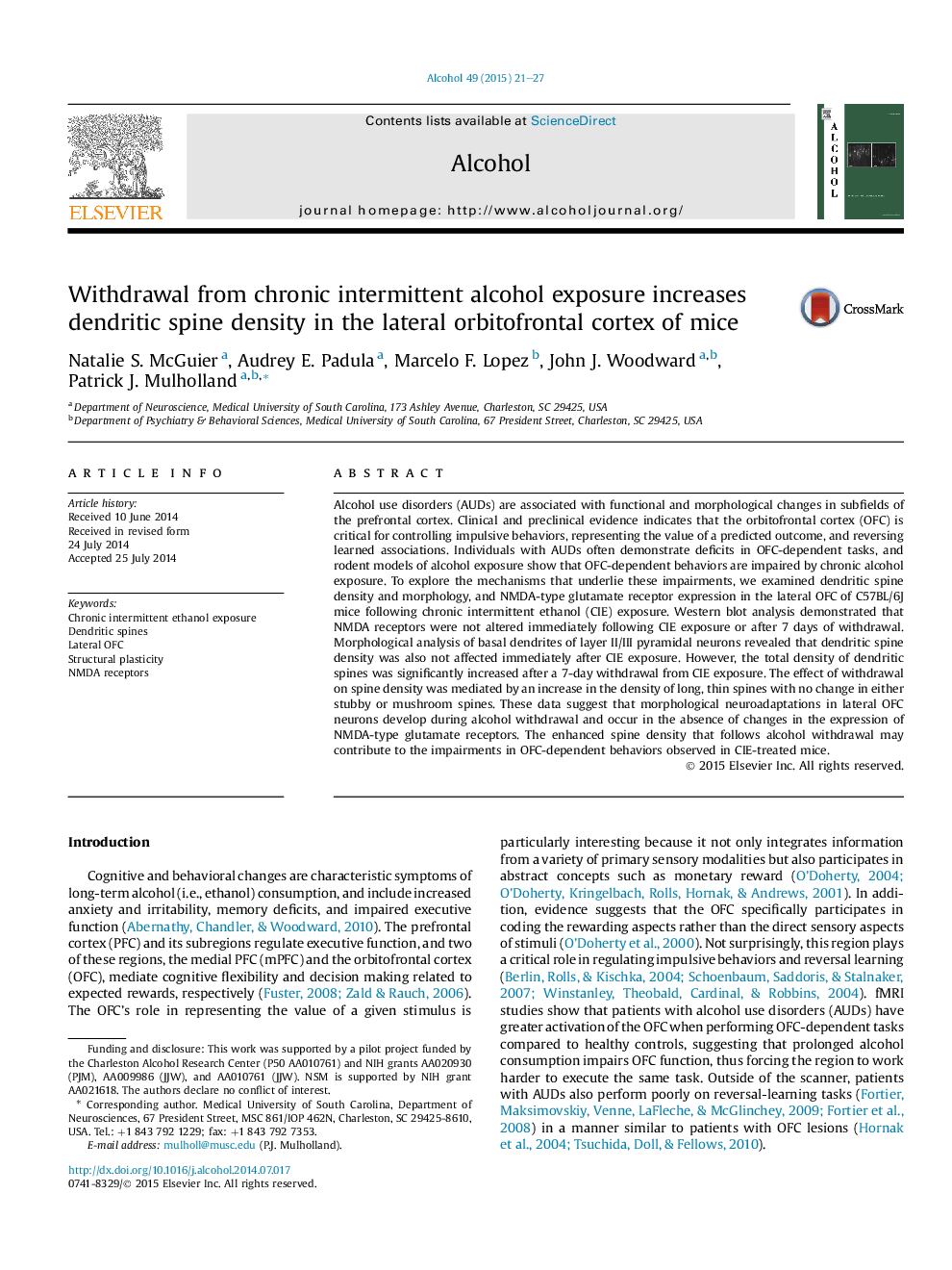| کد مقاله | کد نشریه | سال انتشار | مقاله انگلیسی | نسخه تمام متن |
|---|---|---|---|---|
| 1066917 | 948853 | 2015 | 7 صفحه PDF | دانلود رایگان |
Alcohol use disorders (AUDs) are associated with functional and morphological changes in subfields of the prefrontal cortex. Clinical and preclinical evidence indicates that the orbitofrontal cortex (OFC) is critical for controlling impulsive behaviors, representing the value of a predicted outcome, and reversing learned associations. Individuals with AUDs often demonstrate deficits in OFC-dependent tasks, and rodent models of alcohol exposure show that OFC-dependent behaviors are impaired by chronic alcohol exposure. To explore the mechanisms that underlie these impairments, we examined dendritic spine density and morphology, and NMDA-type glutamate receptor expression in the lateral OFC of C57BL/6J mice following chronic intermittent ethanol (CIE) exposure. Western blot analysis demonstrated that NMDA receptors were not altered immediately following CIE exposure or after 7 days of withdrawal. Morphological analysis of basal dendrites of layer II/III pyramidal neurons revealed that dendritic spine density was also not affected immediately after CIE exposure. However, the total density of dendritic spines was significantly increased after a 7-day withdrawal from CIE exposure. The effect of withdrawal on spine density was mediated by an increase in the density of long, thin spines with no change in either stubby or mushroom spines. These data suggest that morphological neuroadaptations in lateral OFC neurons develop during alcohol withdrawal and occur in the absence of changes in the expression of NMDA-type glutamate receptors. The enhanced spine density that follows alcohol withdrawal may contribute to the impairments in OFC-dependent behaviors observed in CIE-treated mice.
Journal: Alcohol - Volume 49, Issue 1, February 2015, Pages 21–27
